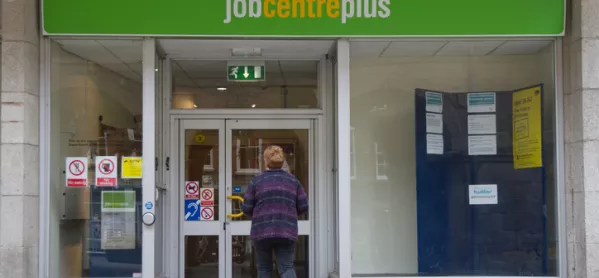Youth unemployment: Why we need to invest £4.6bn a year

We need to act to avoid a lost generation of young people. Learning and Work Institute’s Youth Commission argues that we must invest an extra £4.6 billion per year so that three in four young people gain a level 3 qualification by age 25 and we tackle the youth employment crisis.
The spread of the pandemic means more disruption to education and the economy during the first part of 2021. But the rollout of the vaccines hopefully means the second half of the year will be better, meaning that we can start to look to the future.
Which is why Learning and Work Institute’s Youth Commission has now published its final report, setting out how we can improve young people’s education and employment outcomes by 2030.
News: MPs criticise the DfE over college finances
Apprenticeships: How to improve access to level 4
Long read: Stephen Evans and his mission to make a difference
Perhaps its most important argument is that we should set a much higher ambition: for all young people to have access to skills, learning and good work. We’ve translated that into expecting most young people to gain the basic skills and level 2 qualifications they need by 2030 and three-quarters to attain a level 3 qualification. We also want to see more young people in employment, including one in three to take part in an apprenticeship, and to eliminate low pay.
Apprenticeships and skills: Getting more young people into employment
Across five research reports spanning three years, the Youth Commission has shown how education and employment support and outcomes too often fall short compared with other countries. Our starting point is that the fallout from the pandemic has hit young people hard, with sharp rises in youth unemployment and disrupted education. But we entered this crisis with structural weaknesses: policy that too often operates in silos, groups that too often miss out, and outcomes that are too often average by international standards.
Given that, how can we deliver this higher ambition by 2030?
Most importantly, we need investment and partnership that match the scale of the ambition. On investment, we calculate an extra £4.6 billion per year is needed for the next decade - a 22 per cent increase on current investment and focused on employment, groups that miss out and vocational education.
On partnership, this isn’t something a single government department can do on its own. We need to throw off the shackles of silo thinking that too often blight our approach. Time to work with providers, employers, unions, across government and with local government. For me, that should include greater devolution, too, tied to improving outcomes for young people.
Beyond this, the Youth Commission makes a range of proposals for delivering better support for all young people. That includes helping one in three young people to take part in an apprenticeship by providing £450 million per year to fund apprenticeships for 16- to 18-year-olds alongside other education routes, offering a £5,000 bonus to employers taking on young apprentices during the pandemic, and broadening the scope of apprenticeships so they prepare young people for future careers.
We also need to better join up employment and skills support. One way to do this would be a new Youth Allowance group within Universal Credit. This would support young people to combine studying up to level 3 with job search, backed by investment in more flexible learning routes. It should also be open to 16- to 17-year-olds, who too often miss out today. In this way, we can end the false choice young people face between earning and learning.
The Youth Commission has undertaken lots of research, looked at other countries, spoken to young people and thought about where we’re heading if we don’t change course. There’s a very clear case for action and the final report is packed with ideas.
But the central argument is very simple. All young people deserve every chance to make the most of their talents. This is a matter of fairness but also our collective prosperity: we’re all poorer if we don’t make the most of all our talents. Yet today we fall short of this; talent is evenly distributed across the country but opportunity isn’t.
The ambitions we’ve set out for 2030 will be stretching to achieve. But the experience of other countries shows they are achievable. We need to act now to make the 2020s a decade of recovery and renewal.
Stephen Evans is chief executive of Learning and Work Institute
You need a Tes subscription to read this article
Subscribe now to read this article and get other subscriber-only content:
- Unlimited access to all Tes magazine content
- Exclusive subscriber-only stories
- Award-winning email newsletters
Already a subscriber? Log in
You need a subscription to read this article
Subscribe now to read this article and get other subscriber-only content, including:
- Unlimited access to all Tes magazine content
- Exclusive subscriber-only stories
- Award-winning email newsletters



